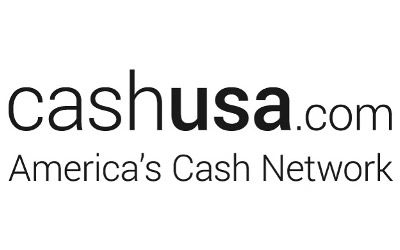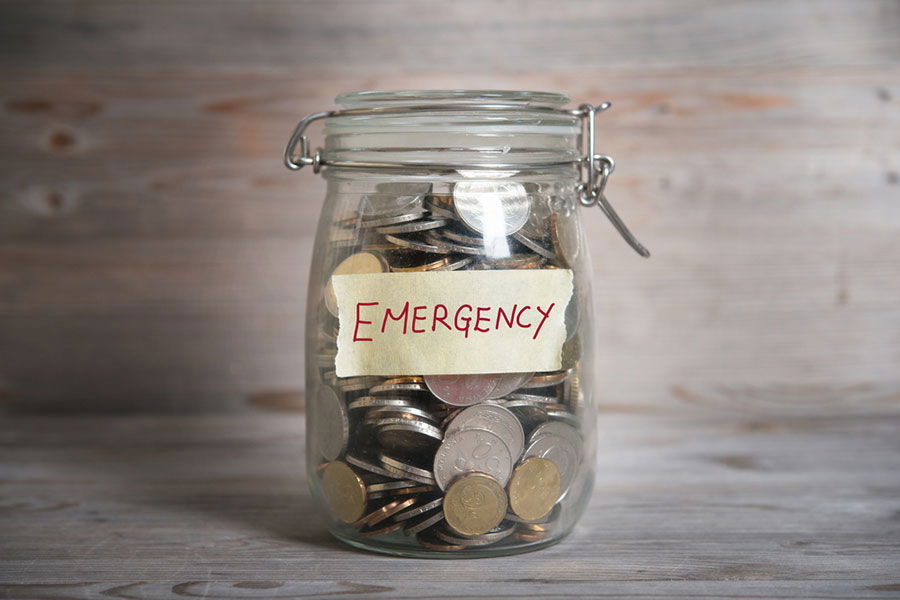Need a $5,000 loan but stuck with bad credit? Most banks either deny your application or hit you with sky-high interest rates. But some lenders are more flexible—and can get you the cash fast, even if your credit score isn’t perfect.
You won’t find these options at your local branch. But online lenders and loan marketplaces now cater specifically to borrowers with bad credit. The catch? These loans often come with higher fees and APRs, so it’s important to compare offers carefully and know what to avoid.
6 Bad Credit Loans You Can Get for $5,000 or More
Below are some of the best lenders offering $5,000 personal loans for bad credit, along with what to expect in terms of rates, terms, and eligibility requirements.
1. Upgrade
Upgrade is a solid option for borrowers with fair or bad credit who need at least $5,000.
2. Upstart
Upstart looks beyond your credit score when evaluating your application, making it a good option if you have a limited credit history but steady income.
3. NetCredit
NetCredit is designed for borrowers with less-than-perfect credit who need a loan of $5,000 or more.
4. CashUSA
CashUSA is an online loan marketplace that connects borrowers with lenders offering personal loans, even if you have bad credit.
5. BadCreditLoans
BadCreditLoans is a lending marketplace built specifically for people with poor credit.
6. PersonalLoans.com
PersonalLoans.com connects borrowers to a wide network of lenders offering installment loans, even if you have bad credit.

How to Decide if a Bad Credit Personal Loan Is for You
A bad credit personal loan can be a quick financial fix, but that doesn’t mean it’s always the right choice. Here’s how to decide if it’s a smart move—or if you should look for other options.
When It Makes Sense to Take a Loan
- You need the money fast: If you have an urgent expense (like a medical bill or car repair), a personal loan may be the quickest solution.
- You’re consolidating high-interest debt: If you can replace credit card debt with a lower-rate loan, you might save money on interest.
- You have a clear repayment plan: If you can confidently afford the monthly payments, a personal loan can help you handle necessary expenses.
When You Should Avoid a Loan
- You don’t have a specific purpose: Borrowing just to have extra cash can lead to unnecessary debt.
- You’re struggling with spending habits: If you regularly max out credit cards, adding more debt won’t solve the problem.
- You’re unsure about monthly payments: If you can’t comfortably afford the payments, a personal loan could make your financial situation worse.
Before applying, consider cheaper alternatives like credit union loans, 0% APR credit cards, or borrowing from a trusted friend or family member. Taking time to improve your credit score could also unlock better loan terms in the future.
How to Improve Your Chances of Loan Approval
Getting approved for a $5,000 personal loan with bad credit isn’t always easy, but there are steps you can take to improve your odds and secure better terms.
1. Check Your Credit Report for Errors
Before applying, review your credit report at AnnualCreditReport.com to spot errors that could be lowering your score. Dispute any inaccuracies with the credit bureaus to potentially boost your approval chances.
2. Compare Lenders That Offer Prequalification
Some lenders let you check potential rates without a hard credit inquiry. This allows you to compare offers before applying, helping you avoid unnecessary credit dings while finding the best deal.
3. Lower Your Debt-to-Income (DTI) Ratio
Lenders consider your DTI ratio—the percentage of your income going toward debt payments. Paying down small balances before applying can improve your DTI and make you a more attractive borrower.
4. Show Proof of Stable Income
Even with bad credit, lenders want to see consistent income. Be prepared to provide recent pay stubs, tax returns, or bank statements to verify your ability to repay the loan.
5. Consider Adding a Co-Signer
Some lenders allow co-signers, which can help you qualify for better rates if your co-signer has strong credit. Just keep in mind that if you miss payments, their credit will be affected too.
6. Avoid Applying for Multiple Loans at Once
Submitting too many loan applications in a short time can lower your credit score and make lenders view you as high risk. Focus on one or two lenders that prequalify borrowers without a hard pull.
Pros & Cons of a Bad Credit Personal Loan
Pros:
- Quick access to funds: Many lenders offer same-day or next-day deposits.
- No collateral required: Most bad credit loans are unsecured, so you don’t risk losing assets.
- Flexible use: Funds can be used for emergencies, debt consolidation, or other expenses.
Cons:
Potential debt cycle: If used for unnecessary spending, these loans can worsen financial struggles.
High interest rates: Bad credit loans often have APRs between 30%–150%, making them expensive.
Origination fees & hidden costs: Many lenders deduct fees upfront or charge prepayment penalties.
Alternatives to Bad Credit Personal Loans for $5,000
If a personal loan isn’t the best fit for your situation, there are other ways to access cash—some with lower costs and fewer risks. Before committing to a high-interest loan, consider these alternatives.
1. Credit Union Personal Loans (Best for lower rates)
Many credit unions offer personal loans with more forgiving credit requirements and lower interest rates than traditional lenders. If you’re a member, this could be a more affordable option.
2. 0% APR Credit Cards (Best for short-term borrowing)
If you qualify for a credit card with a 0% intro APR offer, you could borrow money interest-free for a set period (usually 12–18 months). This is a great option if you can pay off the balance before the promo period ends.
3. Personal Line of Credit (Best for flexible borrowing)
Some banks and credit unions offer personal lines of credit, allowing you to borrow only what you need and only pay interest on the amount used. This can be cheaper than a lump-sum personal loan.
4. Home Equity Line of Credit (HELOC) (Best for homeowners)
If you own a home and have equity, a HELOC lets you borrow against it at lower interest rates than unsecured loans. However, this puts your home at risk if you can’t repay.
5. Borrowing from Friends or Family (Best for avoiding interest)
If you have a trusted friend or family member willing to lend you money, this could help you avoid high fees and interest rates. Be sure to treat it as a formal agreement with clear repayment terms.
6. Employer Paycheck Advances (Best for short-term cash flow issues)
Some employers offer paycheck advances or hardship loans with no interest. Check with HR to see if this is available.
7. Side Hustles & Selling Items (Best for avoiding debt)
If the money isn’t urgently needed, consider picking up a temporary side gig or selling unused items instead of taking on new debt. Even a few hundred dollars could reduce the amount you need to borrow.
8. Payday & Title Loans (Last Resort – Avoid if Possible)
Payday loans and title loans should only be used as a last resort due to extremely high interest rates (300%+ APR) and predatory terms. If you’re considering one, explore all other options first.
Bottom Line
A $5,000 personal loan is possible with bad credit, but it often comes with high interest rates and fees that can make repayment difficult. Before committing, explore lower-cost alternatives like credit union loans, or 0% APR credit cards.
If you do move forward with a loan, compare lenders carefully, check for hidden fees, and make sure the monthly payment fits your budget.
If bad credit is limiting your options, focusing on credit improvement can help you qualify for better loan terms in the future. Take advantage of our free DIY credit repair guide to start rebuilding your credit today.
Frequently Asked Questions
Can I get a $5,000 personal loan with a low income?
Yes, but lenders will evaluate whether your income is high enough to cover the monthly payments. Some lenders have minimum income requirements, while others focus more on your debt-to-income ratio. If your income is too low, you may need a co-signer or a smaller loan amount.
What documents do I need to apply for a $5,000 loan?
Most lenders will ask for:
- Proof of income: Pay stubs, tax returns, or bank statements
- Government-issued ID: Driver’s license or passport
- Social Security number: Needed for identity verification
- Proof of residence: Utility bill or lease agreement
- Bank account details: For direct deposit of loan funds
Will applying for a personal loan hurt my credit score?
Prequalifying for a loan usually doesn’t impact your score because most lenders use a soft credit check. However, submitting a formal application triggers a hard inquiry, which can lower your score by a few points. Multiple hard inquiries in a short time can make it harder to get approved.
How long does it take to get approved for a $5,000 loan?
Approval times vary by lender. Many online lenders provide same-day approval, with funds deposited in one to three business days. Traditional banks and credit unions may take longer, sometimes up to a week.
Can I use a personal loan to pay off medical bills or rent?
Yes, personal loans can be used for nearly any expense, including medical bills, rent, moving costs, or emergency repairs. However, if you’re struggling with ongoing bills, it may be worth exploring hardship programs, medical payment plans, or rental assistance before taking on debt.
What happens if I can’t make my loan payments?
Missing payments can lower your credit score, result in late fees, and potentially lead to collections. If you’re struggling, contact your lender immediately—some offer hardship programs or modified payment plans. Defaulting on the loan could lead to legal action, especially for larger amounts.
Are there personal loans specifically designed for debt consolidation?
Yes, some lenders offer debt consolidation loans that allow you to combine multiple debts into one monthly payment, often at a lower interest rate. If you’re using a personal loan for debt consolidation, check if the lender offers direct payments to creditors to simplify the process.









